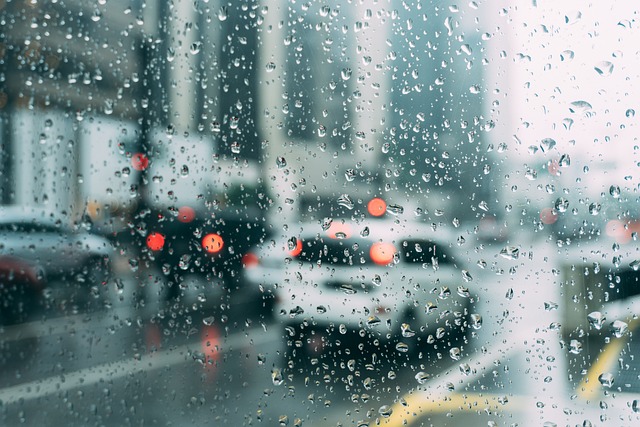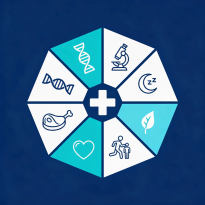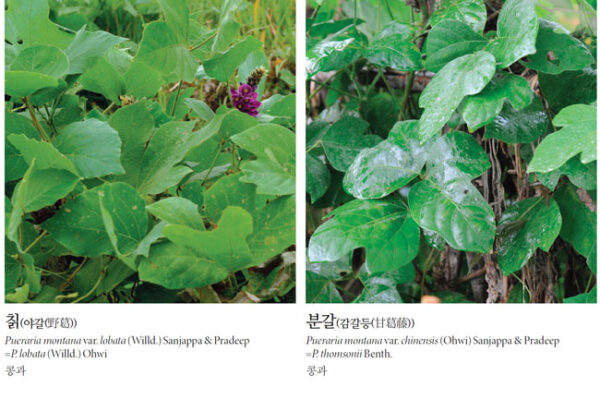3 Powerful Reasons You Feel Better on Rainy Days
As rain falls, our thoughts often turn to those affected by storms and floods. We send our heartfelt support and hope for a quick recovery to everyone facing hardship.
For many, a downpour brings a sense of gloom or disrupts plans. But for a select few, the sound of rain and the cool, damp air bring an incredible sense of well-being and clarity. If you’re one of those people who secretly loves a rainy day, you’re not just imagining it. There’s a fascinating explanation for why you might feel better on rainy days, and the answer may lie in ancient wisdom.
This isn’t just about a love for cozy indoor activities. We’re going to explore a unique perspective from Korean 8 Constitutions Medicine that connects your body’s energy to the weather, revealing why the rain is a blessing for your specific constitution.
1. The Physics of Peace: How Rain Gathers Sound and Energy
Have you ever noticed that music sounds different on a rainy day? If you’re listening through speakers, you might find the sound is richer, clearer, and more focused. It feels like the music is “gathering” in the room rather than scattering.
Conversely, on a hot, dry day, the same music at the same volume can sound thinner and more dispersed.
This isn’t a trick of your ears. It’s physics. The humid, moisture-laden air of a rainy day is denser. This density causes sound waves to travel more slowly and prevents them from scattering outwards. Instead, they tend to sink and converge. This creates a focused, cocoon-like auditory experience.
This physical phenomenon of “gathering” or “converging” is key. The energy of a rainy day pulls things inward and downward. If your body’s natural tendency is to have energy that disperses outward, this rainy-day effect can feel incredibly balancing and calming. It’s the perfect natural remedy for a system that’s always in “expansion” mode.

2. An Ancient Answer: Korean Medicine and Your Body’s “Outer” Organs
To understand this better, we turn to Korean 8 Constitutions Medicine, a system that classifies people based on the relative strength of their internal organs. This in turn dictates their physical and emotional tendencies.
In this framework, organs are understood not just by their physical function but by their energetic properties. Some organs are considered “outer” organs, while others are “inner.”
-
“Outer” Organs (Lungs & Kidneys): In Korean medicine, the Lungs are the quintessential outer organ. They govern our skin and respiratory system—our direct interface with the outside world. The Kidneys are also considered “outer” organs. While located deep inside, they sit on the posterior (back) side of the body and exist as a pair. It’s believed that these paired organs—two lungs, two kidneys—were formed through a process of energetic division and expansion. People with strong Lung or Kidney energy naturally have an energy that tends to flow outward and disperse.
-
“Inner” Organs (Liver, Spleen, Stomach): In contrast, organs like the Liver, Spleen, and Stomach are singular. They are located centrally in the body and are considered “inner” organs with a more contained energy.
This distinction is the secret to why some people feel better on rainy days. If your constitution is defined by strong, expansive “outer” organs, the “gathering” energy of the rain provides a perfect, soothing counterbalance.
3. The Constitutions That Thrive in the Rain
Based on this principle, we can identify which of the 8 Constitutions benefit most from a downpour. People with dominant Lung or Kidney energy find rainy days to be their best days.
The converging energy of the rain is most beneficial for constitutions with strong Lung or Kidney function. Specifically, two types experience the most positive effects, making them feel better on rainy days.
-
The Two Types That Thrive Most: The Colonotonia and Renotonia constitutions feel the best. For these types, the dominant energy of their outer organ systems (Lungs/Colon and Kidneys) is inherently excessive. The converging energy of the rain perfectly tempers this excess, bringing them into a state of ideal balance, leading to improved mood and physical comfort. This is the secret to why you might suddenly feel incredibly centered on a wet day.
-
Also Feeling Good: The Pulmotonia and Vesicotonia constitutions also benefit, as the rain helps balance their dominant outer organ energy, though the effect may be less pronounced.
-
The Opposite Effect: On the other hand, constitutions like Hepatonia and Cholecystonia, who are governed by strong “inner” organs like the Liver, often feel the opposite. The heavy, damp atmosphere can make them feel sluggish, depressed, or unwell, as it doesn’t align with their energetic needs.
Plan Your Day with the Weather
Understanding your connection to the weather is more than just a fun fact; it’s a practical tool for well-being and productivity.
If you are someone who tends to feel better on rainy days, you may have a constitution that thrives in this environment. Embrace it! Use these days for tasks that require deep focus, introspection, and calm creativity. The world outside is providing the perfect atmosphere for your mind to thrive. On sunny, expansive days, you might feel a bit more scattered, so use those for social activities, exercise, and tasks that require outward energy.
By aligning your schedule with your natural rhythms and the weather, you can unlock a new level of personal efficiency and contentment.
So next time the clouds roll in, pay close attention to how your body and mind respond. You might just discover that you are perfectly in tune with the rhythm of the rain.
For the original Korean text, visit here.
If you’re curious about the basics of traditional Korean medicine and health, read the following article:
The Truth About 8 Constitution Medicine: A Revolutionary Healing Framework Explained
Learn Why Studying JangSang Medicine is Important.
Frequently Asked but Silly Questions (Foods Good for the Liver??)


